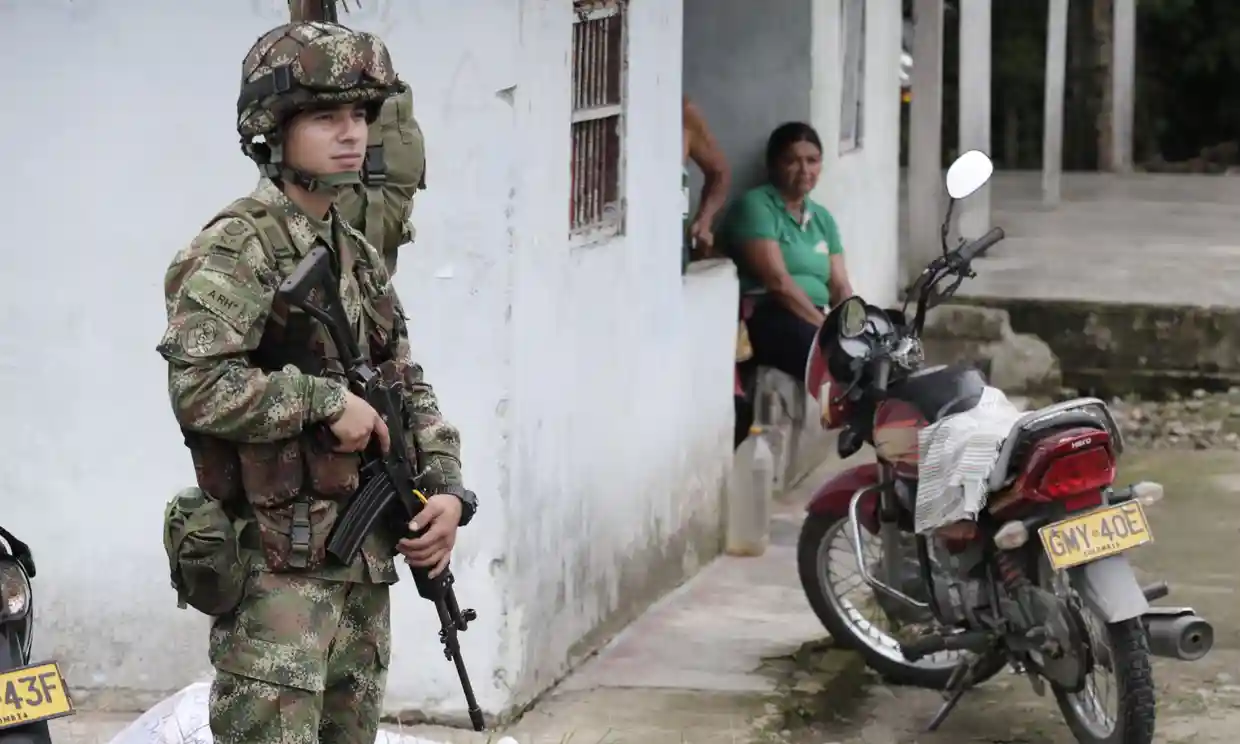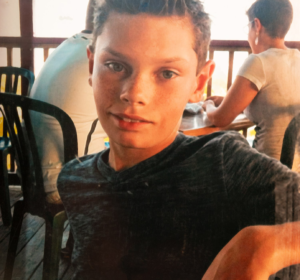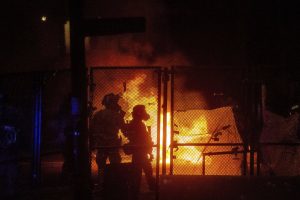March raid in remote Putumayo village was intended to target former Farc dissidents now involved in cocaine trade
Colombian authorities are facing growing calls to investigate a botched army raid in which at least four civilians – including a 16-year old boy, a pregnant woman, and an Indigenous leader – were killed.
The raid took place early on 28 March in a remote village in the conflict-racked southern province of Putumayo. It was intended to target dissident guerrillas from the now-defunct Revolutionary Armed Forces of Colombia (Farc) who are now involved in the cocaine trade.
The mission left 11 dead, including the civilians, in circumstances that remain shrouded in mystery. Witnesses and local journalists have said that the victims’ bodies and the scene of the killings appear to have been tampered with, adding to the suspicion.
Colombia’s army – which has repeatedly been accused of killing civilians – has vehemently denied any wrongdoing, characterizing the raid as a legal operation to take out violent terrorists.
But human rights organisations question the official account.
“We have solid evidence suggesting that at least four of the people killed were civilians,” said Juan Pappier, an investigator with Human Rights Watch, which is working on the case.
“The ministry of defense’s explanation has serious inconsistencies and mistakes. A thorough, credible and impartial investigation by civilian justice authorities is urgently needed.”
Pain was further piled on to a traumatized nation when Eduardo Zapateiro, the general in command of Colombia’s army, said on Monday that “it is not the first operation in which pregnant women or underage combatants fall”.
Condemnation of the callous remarks was swift.
“The lack of humanity of those that govern us is a Colombian disgrace,” tweeted Katherine Miranda, a councilwoman for Bogotá. “All deaths are equal, only some are more equal than others.”

Many Colombians were reminded of similar remarks made by the defense minister, Diego Molano, who in March last year described child soldiers killed in an airstrike as “machines of war”. On Tuesday, calls for his resignation again surfaced on social media, while lawmakers called for a motion to censure the minister.
Colombia’s army has a dark history of human rights abuses in its war against the Farc, which formally demobilised in 2016. That war, which spanned five decades, left 260,000 dead and displaced 7 million people. State-aligned paramilitaries and other leftist guerrilla groups contributed to the bloodshed.Advertisement
In one of the most chilling episodes of the war – known as the “false positives” scandal – the army abducted and murdered at least 6,402 civilians before dressing them in rebel fatigues and declaring them combat kills, in order to boost stats and justify US military aid. The soldiers involved were rewarded with promotions and time off.
Critics say that the Colombian army’s tactics against dissident rebels in Putumayo prove the army’s atrocities are not confined to the past.
“[The army believes that] any action – even if it violates human rights – is valid as long as operational results can be obtained against terrorism,” said Iván Cepeda, an opposition senator who has investigated Colombia’s military. “And that doctrine has been the source of thousands of human rights violations in Colombia, which, as can be seen, continue to be perpetrated.”
As the scandal dominated news cycles in Colombia on Tuesday afternoon, President Iván Duque was in New York, addressing the United Nations security council about peace-building efforts.
His claim before the council that “Colombia is a country that embraces the substantive principles of peace,” drew incredulity back home.
“We can see that Duque lies to the international community while in Colombia there are very serious problems in terms of peace and human rights,” Cepeda said. “He goes to the UN to boastfully lie about his record on peace.”




